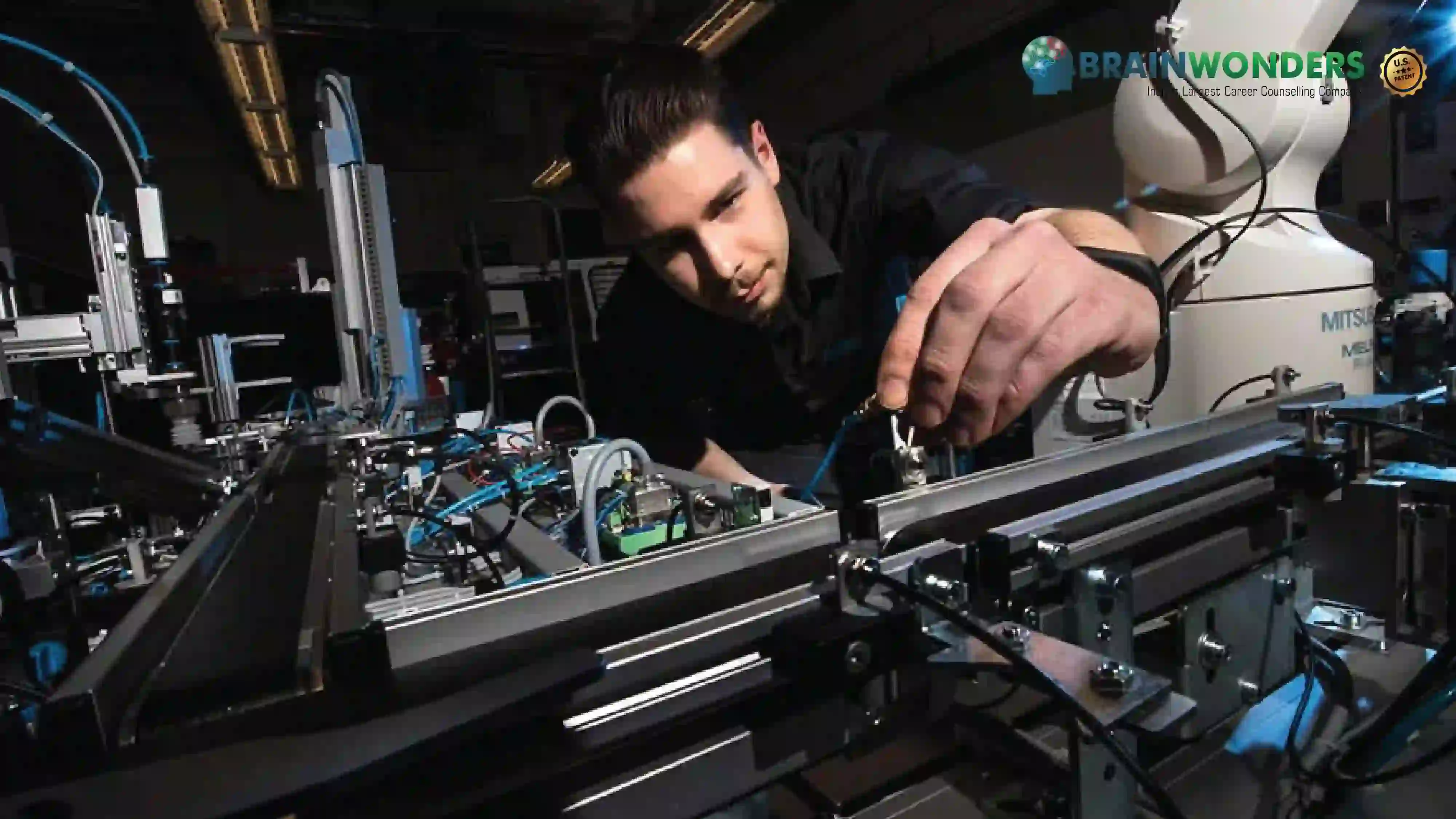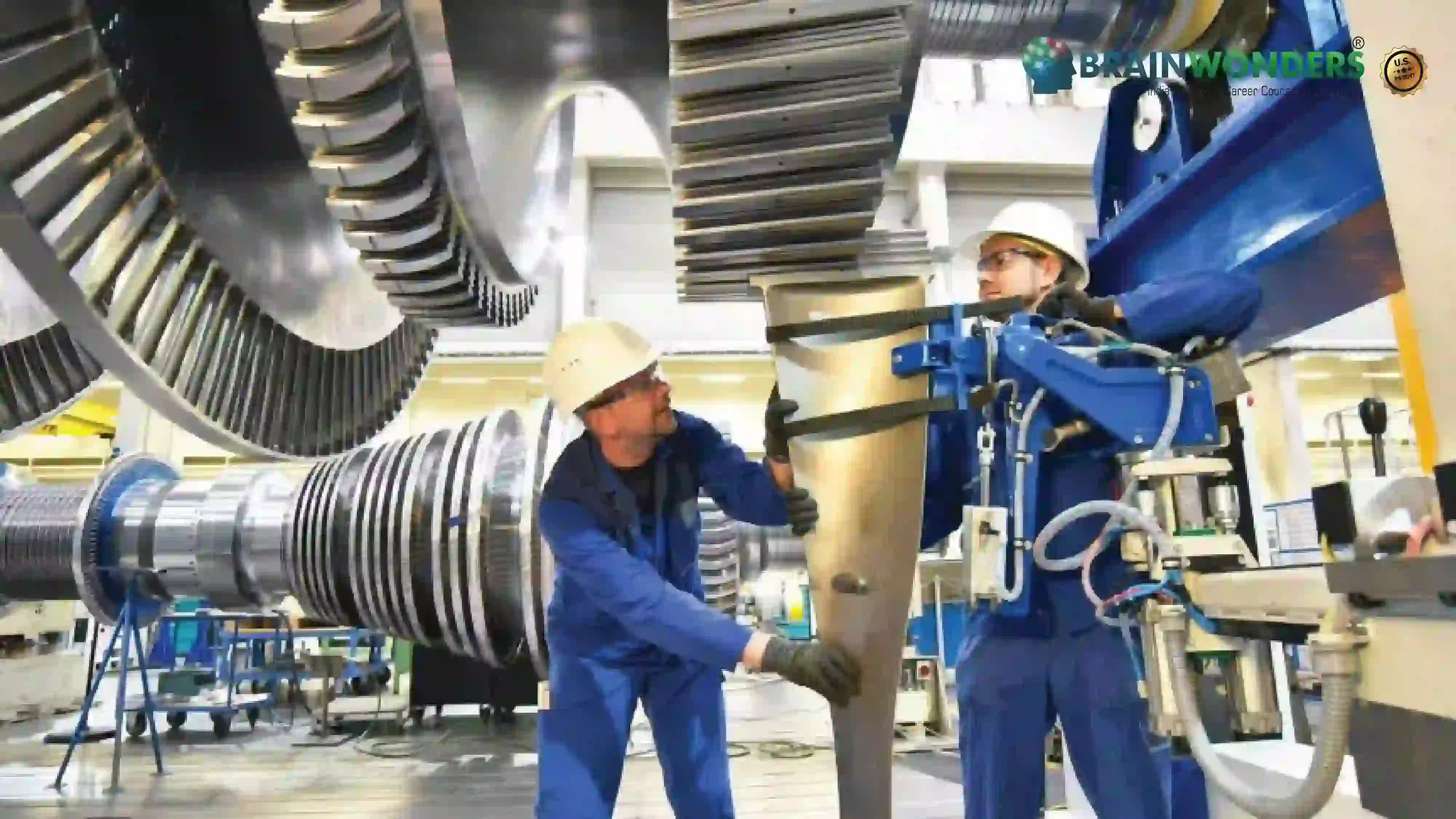Diploma in Mechanical Engineering - Course, Fees, Eligibility, Top Colleges, Top Careers
Course Description
Diploma in Mechanical engineering is one of the main engineering disciplines that include the application of laws of physics for Design, Analysis and Manufacturing of mechanical systems. Students enrolled to the course are taught about how to make and collect motors and structures, how to control plants and vehicles of all sizes, understand concepts as Mechanics, Kinematics, Fluid Mechanics, Energy and vitality. They gain skills like installation, maintenance and troubleshooting of machines. They also taught to use the center standards in the field to plan and inspect vehicle engines, watercraft, aircraft, warming and cooling frameworks, industrial equipment and machinery, robotics, medical devices, and such.
Diploma in Mechanical Engineering: Overview
The Diploma in Mechanical Engineering has a duration of 3 years. Students can enroll in this course right after completing their 10th-grade entrance exams. Admission to the Mechanical Engineering polytechnic course is based on either a merit list or an entrance exam. Popular entrance exams for the Diploma in Mechanical Engineering include JEECUP, JEXPO, Odisha DET, and others. Top companies like Bajaj, Ford, Honda, NTPC, BHEL, Hindustan Unilever, L&T, Ashok Leyland, etc., are among the top recruiters for Mechanical Engineering Diploma graduates. This course is ideal for candidates with a strong aptitude and interest in machines, advanced mechanics, and robotics. After completing the course, candidates can explore various job profiles such as Mechanical Engineer, Manufacturing Manager, Sanction Head, Sales Engineer, Mechanical Technician, and more. On average, Mechanical Diploma Holders can expect a salary ranging from INR 20,000 to INR 500,000.
What is Diploma in Mechanical Engineering?
Diploma in Mechanical Engineering is a technical education program that provides students with practical and theoretical knowledge in mechanical engineering. It is a 3-year course designed to equip students with the fundamental skills and expertise required to work in the mechanical industry.
Throughout the diploma program, students study engineering mechanics, thermodynamics, manufacturing processes, fluid mechanics, machine design, and more. They also gain hands-on experience in workshops and laboratories, learning to apply engineering principles to solve real-world problems.
The course aims to train students in various aspects of mechanical engineering, including designing, analyzing, and maintaining mechanical systems and machines. It also focuses on developing problem-solving skills, critical thinking, and technical proficiency.
A diploma in Mechanical Engineering opens up diverse career opportunities for graduates in industries like manufacturing, automotive, aerospace, energy, and more. After completing the diploma, students can enter the job market or pursue higher studies to further specialize in specific areas of mechanical engineering. Overall, it is an excellent foundation for a rewarding career in mechanical engineering.
Who should Study Diploma in Mechanical Engineering?
A diploma in Mechanical Engineering is an ideal choice for individuals with a strong interest in machines, mechanical systems, and engineering principles. If you possess the following qualities and aspirations, this course may be suitable for you:
- Technical Curiosity: If you are naturally curious about how machines work, enjoy dismantling and assembling objects, and have a keen interest in understanding mechanical systems, this course is a great fit.
- Problem-Solving Skills: A diploma in Mechanical Engineering involves solving complex engineering problems. If you have a knack for solving technical challenges, this course will further help you develop your problem-solving abilities.
- Mathematics and Science Aptitude: Mechanical Engineering involves a lot of mathematics and scientific principles. If you have a strong foundation in mathematics and science, it will be advantageous for grasping the concepts in this field.
- Creativity and Innovation: Mechanical Engineering offers opportunities for creativity and innovation in designing and developing new machines and systems. If you enjoy developing innovative solutions, this course can be fulfilling.
- Hands-on Skills: Mechanical Engineering involves practical work, such as operating machines, using tools, and conducting experiments. If you enjoy hands-on activities and are willing to work in workshops and laboratories, this course will suit you.
- Interest in Industrial Applications: If you aspire to work in various industries like manufacturing, automotive, aerospace, or energy, a diploma in Mechanical Engineering can open up exciting career prospects.
Why study Diploma in Mechanical Engineering?
Studying Diploma in Mechanical Engineering offers several compelling reasons and benefits:
- Practical Skills: The course focuses on hands-on learning, providing valuable practical skills in the engineering industry. You will gain experience in workshops and laboratories, honing your technical abilities.
- High Demand: Mechanical engineers are in high demand across various industries, including manufacturing, automotive, aerospace, and energy. Completing the diploma opens up diverse job opportunities.
- Short Duration: The diploma course typically spans 3 years, allowing you to enter the job market earlier than a full-fledged engineering degree, saving time and cost.
- Industry-Relevant Curriculum: The curriculum aligns with industry needs, making you job-ready with the necessary knowledge and expertise.
- Specialization: Mechanical Engineering offers opportunities for specialization in areas like machine design, thermal engineering, robotics, and more, enabling you to pursue your passion and interests.
- Versatility: Mechanical Engineering is a versatile field, and graduates can work in various roles, from design and analysis to maintenance and production.
- Continuous Innovation: Mechanical Engineering involves continuous innovation and improvements, ensuring you stay engaged in challenging and dynamic work environments.
- Career Progression: With experience and further education, you can progress in your career and take on leadership roles or specialize in advanced areas of mechanical engineering.
- Global Opportunities: Mechanical Engineering is a globally recognized profession, providing opportunities to work in different countries and explore international projects.
- Impactful Contribution: As a mechanical engineer, you can contribute to society by designing efficient machines, promoting sustainable practices, and developing solutions that improve people's lives.
Diploma in Mechanical Engineering: Eligibility Criteria
To be eligible for the Diploma in Mechanical Engineering course, candidates must meet the following criteria:
- Educational Qualification: Candidates should have completed their 10th standard or equivalent from a recognized board.
- Minimum Marks: A minimum aggregate of 55% marks in the 10th standard with Mathematics and English as main subjects is required for most institutions.
- Relaxation in Marks: In some states, the minimum required marks for the 10th or equivalent examination maybe 35%, providing more opportunities for candidates.
- Vocational or ITI Candidates: Candidates who have pursued vocational or ITI (Industrial Training Institute) courses are also eligible for admission and may be eligible for direct entry into the second year of the diploma program.
- State Entrance Exams: Admission to the diploma course may require candidates to appear and qualify in the state entrance exams conducted by respective authorities.
Meeting these eligibility criteria opens doors for aspiring students to enroll in the Diploma in Mechanical Engineering program and pursue a rewarding career in mechanical engineering.
Diploma in Mechanical Engineering: Admission 2023
Admission to the Diploma in Mechanical Engineering course for the academic year 2023 will follow the usual process, which may vary slightly between different institutes and states. Here is an overview of the general admission process:
- Notification: Institutes offering the Diploma in Mechanical Engineering course will release admission notifications outlining important dates, eligibility criteria, and application procedures. This information is usually published on the official websites and in newspapers.
- Eligibility Check: Interested candidates must meet the eligibility criteria specified by the respective institute. The eligibility criteria typically include educational qualifications and minimum required marks.
- Application Form: Eligible candidates must fill out the diploma course application form. The application form may be available online or offline, depending on the institute's preference.
- Submission of Documents: Applicants must provide necessary documents, such as educational certificates, iden
Typical day at work
Frequently Asked Questions
1: Which diploma is best for mechanical engineering?
Answer: The best diploma for mechanical engineering would depend on the individual's career goals and interests. However, a Diploma in Mechanical Engineering is considered one of the most suitable options for those aspiring to enter the field of mechanical engineering.
2: What is a diploma mechanical engineer?
Answer: A diploma mechanical engineer is an individual who has completed a diploma course in mechanical engineering. They are equipped with practical skills and theoretical knowledge in various aspects of mechanical engineering, making them suitable for entry-level positions in the industry.
3: Is a diploma good for mechanical engineering?
Answer: Yes, a diploma in mechanical engineering is a good option for those interested in pursuing a career in this field. It offers hands-on training and technical expertise that can prepare students for various job roles in the mechanical engineering industry.
4: What is the highest salary of a diploma mechanical engineer?
Answer: The highest salary for a diploma mechanical engineer may vary depending on experience, skills, industry, and location. However, experienced diploma mechanical engineers can earn salaries ranging from INR 6,00,000 to INR 10,00,000 or more per annum.
Question 5: Is a mechanical diploma good for the future?
Answer: Yes, a mechanical engineering diploma can be a promising choice for the future. It opens up opportunities in various industries such as manufacturing, automotive, aerospace, and more. As industries continue to evolve and rely on mechanical innovations, the demand for skilled diploma engineers is expected to remain steady, making it a viable and rewarding career path.
Eligibilty
The Candidate should have passed 10+2 with PCM or Its equivalent from a recognized board of education within an aggregate of at least 55% marks.
Diploma Mechanical Engineering: Future Scope & Average Salary
| Future Scope of Diploma in Mechanical Engineering | Average Salary |
|---|---|
| Mechanical Engineer in Manufacturing Industry | INR 3,00,000 - INR 6,00,000 per annum |
| Design Engineer | INR 3,50,000 - INR 7,00,000 per annum |
| Production Engineer | INR 2,50,000 - INR 5,50,000 per annum |
| Quality Control Engineer | INR 2,00,000 - INR 4,50,000 per annum |
| Maintenance Engineer | INR 2,00,000 - INR 4,00,000 per annum |
| Automobile Engineer | INR 3,00,000 - INR 6,50,000 per annum |
| HVAC Engineer | INR 3,50,000 - INR 7,00,000 per annum |
| Aerospace Engineer | INR 3,50,000 - INR 8,00,000 per annum |
| Robotics Engineer | INR 3,50,000 - INR 7,50,000 per annum |
| CAD/CAM Engineer | INR 2,50,000 - INR 6,00,000 per annum |
| Sales Engineer | INR 2,00,000 - INR 4,50,000 per annum |
Colleges







